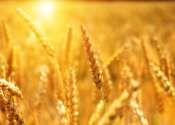New synthetic biology tools unlock complex plant engineering
Researchers at JBEI have developed a new set of synthetic biology tools that could unlock advanced plant engineering.

Researchers at JBEI have developed a new set of synthetic biology tools that could unlock advanced plant engineering.
Biochemistry
Jul 1, 2020
0
7

The World Food Programme has warned that the COVID-19 pandemic could cause one of the worst food crises since World War II. It predicts a doubling of the number of people going hungry – more than half of them in sub-Saharan ...
Economics & Business
Jun 11, 2020
0
3

Plants need nitrogen in the form of ammonium if they are to grow. In the case of a great many cultivated plants, farmers are obliged to spread this ammonium on their fields as fertiliser. Manufacturing ammonium is an energy-intensive ...
Biotechnology
Jun 3, 2020
0
29

Water scarcity, a socio-environmental threat to anthropogenic activities and ecosystems alike, affects large regions of the globe. However, it is often the most vulnerable and disadvantaged populations that suffer the severest ...
Environment
Apr 30, 2020
2
146

Wheat feeds the world. According to the FAO, wheat is one of the world's main crops, both in terms of extent and production, as well as being one of the main sources of carbohydrates and vegetable protein in the human diet. ...
Biotechnology
Apr 21, 2020
0
8

A team of researchers from Wageningen University, Institut Valenci`a d'Investigacions Agr`aries and the Spanish Institute for Sustainable Agriculture has conducted an economic impact study for the olive industry in Europe's ...

As rural masses migrate to urban areas, populations grow, and people work toward better living standards, global food system sustainability is jeopardized, according to a new analysis spanning low- to high-income countries. ...
Environment
Apr 3, 2020
2
314

Maria dreams of being the next Greta Thunberg. Kelita is studying in the first-ever university program in the Amazon. Fabio is helping his family do its part to fight climate change through sustainable agriculture.
Environment
Apr 1, 2020
0
10

Smothered in ketchup or squished into a sandwich, there's one tasty convenience food that's hard to resist. With over 1.5 million of them eaten every day in Britain, fish fingers are one of the nation's favorite foods. Now ...
Environment
Mar 13, 2020
1
10

Only two years in, InnovAfrica-farmers practicing diverse maize-legume and Brachiaria grass production are experiencing increased yields.
Environment
Feb 28, 2020
0
6